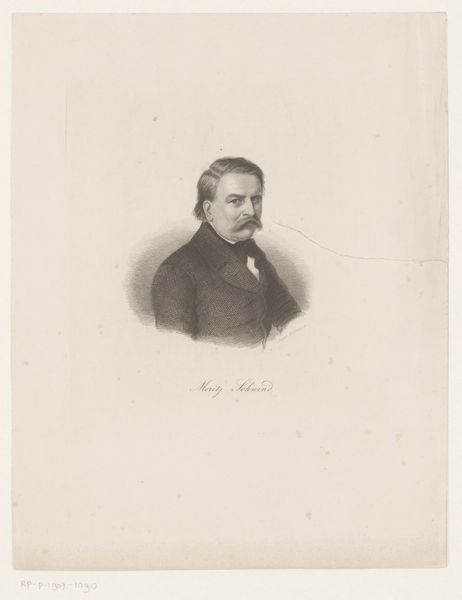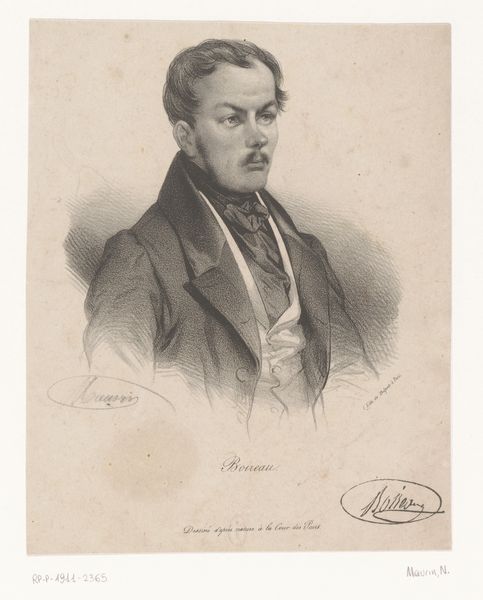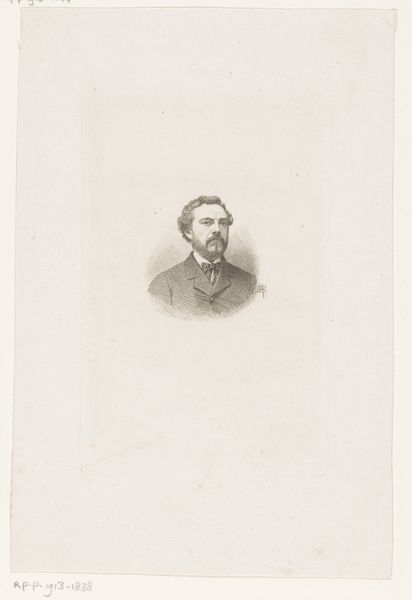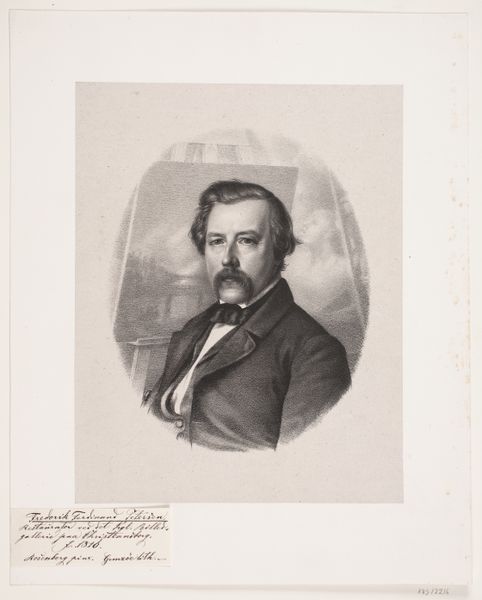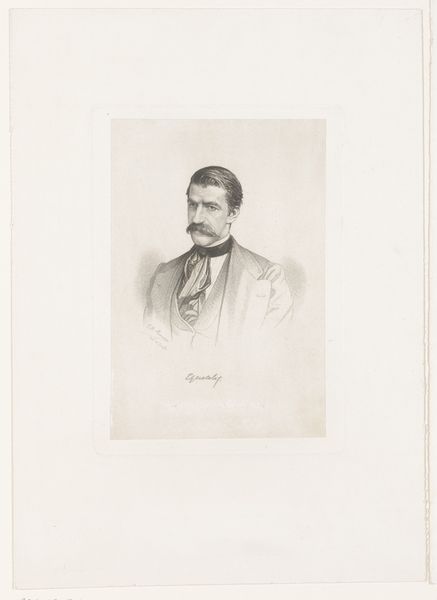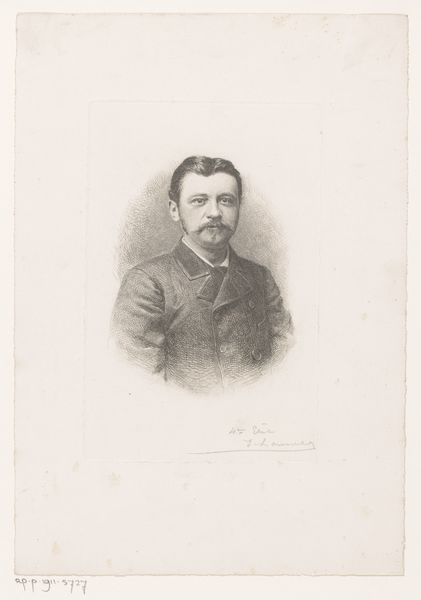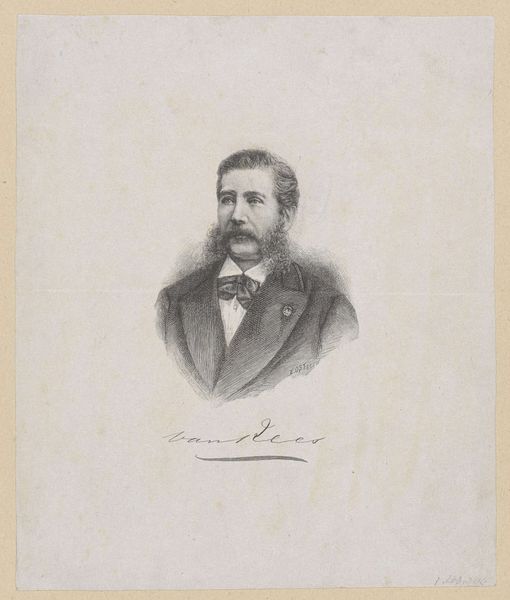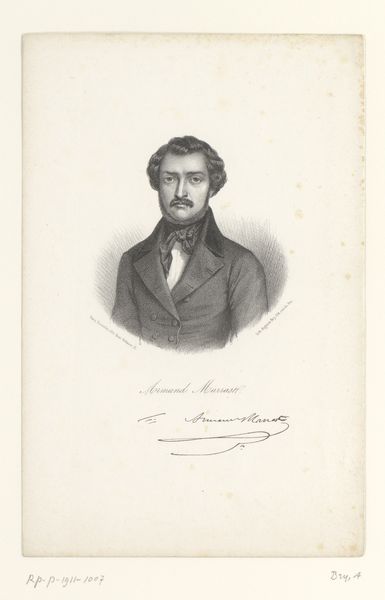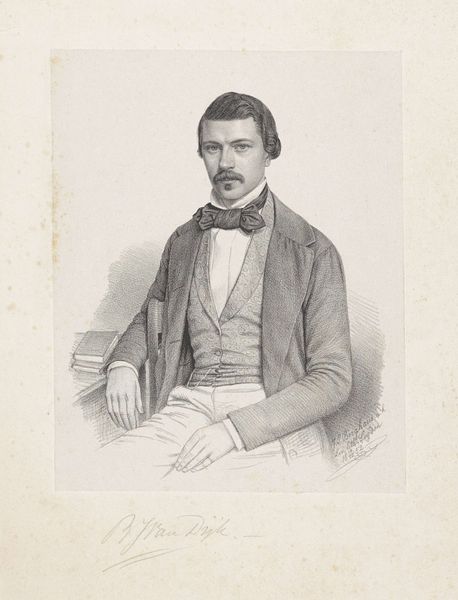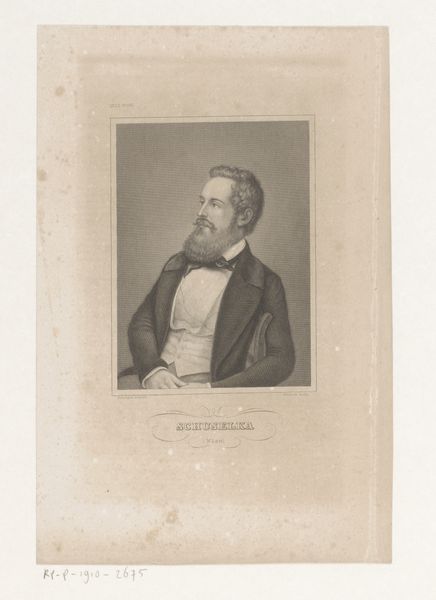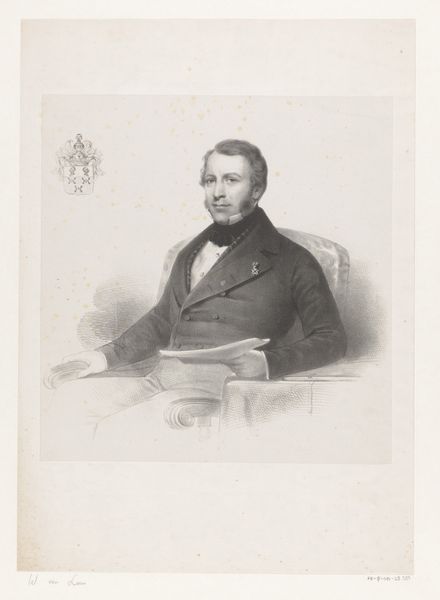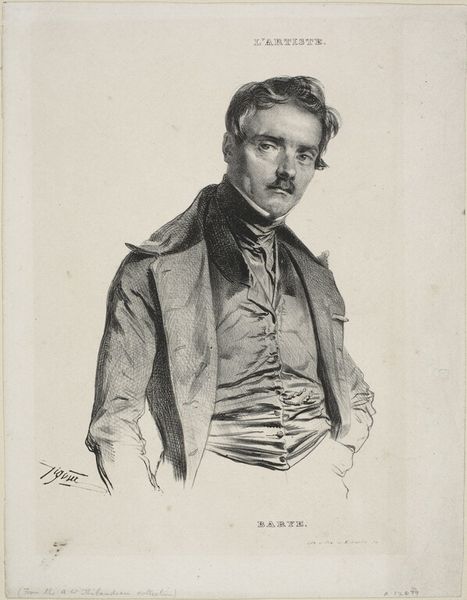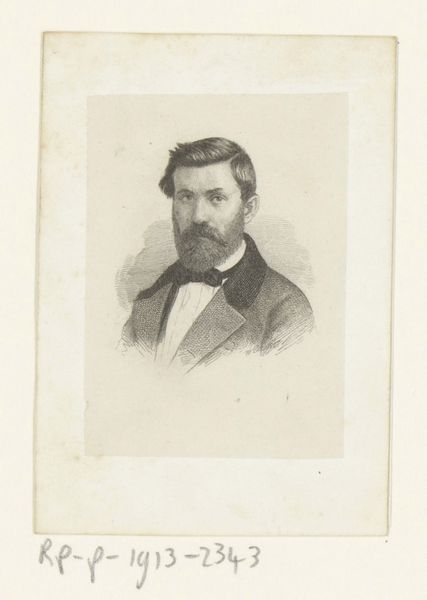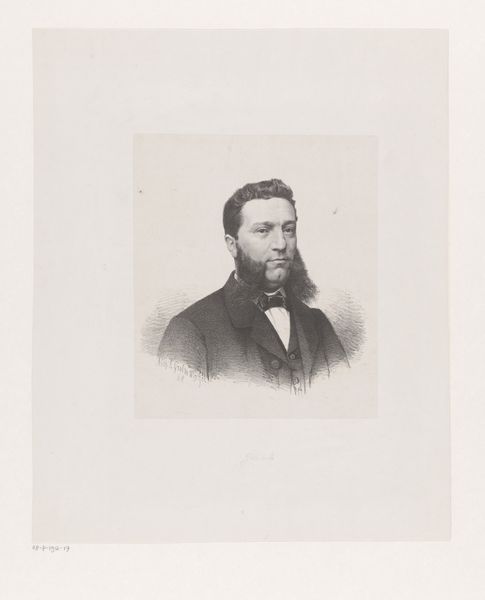
drawing, pencil, graphite
#
portrait
#
pencil drawn
#
drawing
#
light pencil work
#
pencil sketch
#
old engraving style
#
personal sketchbook
#
pencil drawing
#
romanticism
#
pencil
#
limited contrast and shading
#
graphite
#
sketchbook drawing
#
portrait drawing
#
pencil work
#
academic-art
Dimensions: height 258 mm, width 179 mm
Copyright: Rijks Museum: Open Domain
Auguste Bry created this portrait of the socialist Alexandre-Albert Martin using lithography, a printmaking process rooted in industrialization. The essence of lithography lies in its reliance on the chemical repulsion between oil and water. An image is drawn on a flat stone or metal plate with a greasy substance, and then treated with acid to fix the design. The plate is dampened with water, which adheres only to the non-greased areas, and then inked. The ink sticks to the greasy image and is transferred to paper under pressure. This method enabled the efficient reproduction of images, catering to a growing demand for visual media in the 19th century. Lithography democratized art by allowing images to circulate widely, mirroring the socialist ideals of figures like Martin. The process embodies the spirit of mass production and accessibility. In doing so, it dissolves traditional hierarchies between fine art and the graphic arts, highlighting the cultural significance of printed images in shaping public opinion and social movements.
Comments
No comments
Be the first to comment and join the conversation on the ultimate creative platform.
